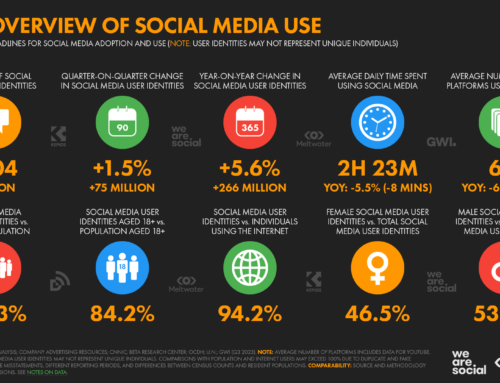 If you moan to 10 of your nonprofit colleagues about how you don’t have time to get your nonprofit on Facebook and other social media sites, I’d guess seven of them will tell you to get an intern to do it for you. (The other three? Two will just nod sympathetically and the other one will have no idea what you are talking about.)
If you moan to 10 of your nonprofit colleagues about how you don’t have time to get your nonprofit on Facebook and other social media sites, I’d guess seven of them will tell you to get an intern to do it for you. (The other three? Two will just nod sympathetically and the other one will have no idea what you are talking about.)
If you are thinking about giving a social media project to an intern or a new employee who is a recent college grad, keep these four tips in mind. They’ll not only make your intern’s experience much better, but your organization will benefit too.
1. Make it a team effort, led by the intern. Social media is . . . well, social. And that’s why it holds so much promise for nonprofits. You can connect with friends of friends of friends you might never otherwise reach. But the organization needs to be at the center of this network, not some intern who is leaving in three months. The intern can lead the way and set everything up, but permanent staff, long-time volunteers and board members must be a part of it too. The team approach also gives your intern valuable project and team management experience, so she isn’t just sitting alone in front of a computer.
2. Be clear about why you are doing it. “Getting on YouTube” is not a marketing goal. Who are you trying to reach and with what message? What do you want these new friends you’ll make to do? Why is getting on Facebook or YouTube the right tactic? Know the answers to these questions ahead of time so that your intern and the team can create a presence online that complements your existing communications work.
3. Make training a part of the assignment — and you get schooled. For your social media project to succeed, the senior management of your organization needs to understand it. Even if you as the executive director or development director don’t login everyday, you still need to understand the culture and vocabulary of the site, what people actually do there, and how your organization is being represented. Give your intern at least fifteen minutes every two weeks to show you and other senior managers what they are doing online and to give you some quick lessons on how you can do it yourself.
4. Open your mind. If the only way you can see your nonprofit getting on to social media sites is by asking a younger person to do it for you, there’s a good chance that you don’t fully understand what it’s all about and just why “everybody’s doing it” in the first place.
For example, you may not be entirely comfortable with the idea that other people (those friends of friends you covet) may be talking about your organization and your issues in their own words, ignoring your talking points and failing to keep all the facts straight.
This is where you have to remember that social media is not just about pushing information out, but also about conversations about that information and collaboration that grows out of those conversations. Relax and go with it. Gently correct when it’s really important to do so. Thank your new friends for caring. You may be pleasantly surprised at the new ideas and insights you discover.






